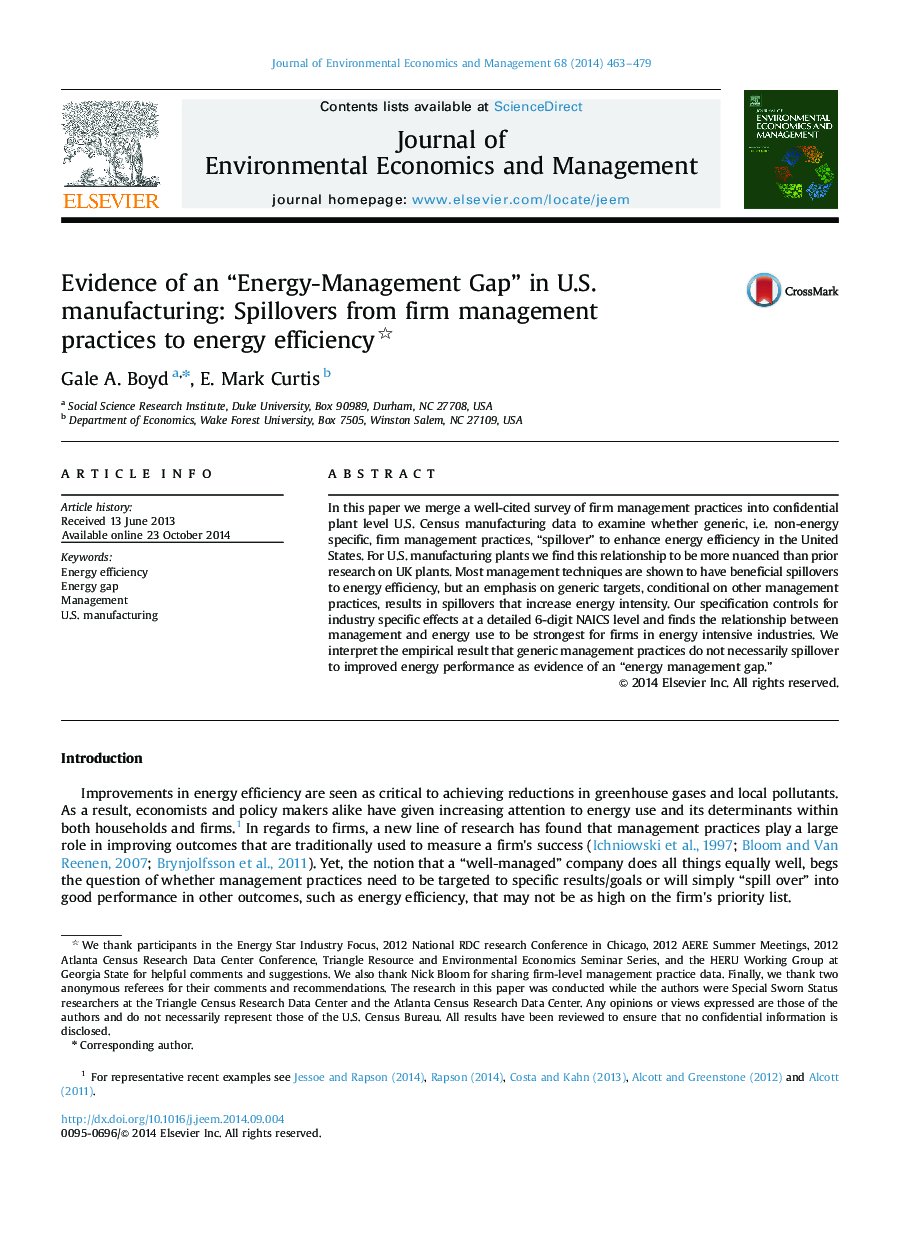| Article ID | Journal | Published Year | Pages | File Type |
|---|---|---|---|---|
| 959211 | Journal of Environmental Economics and Management | 2014 | 17 Pages |
•World Management Survey data is merged to non-public US manufacturing data.•Regression is used to relate management to energy efficiency and productivity.•Better management is unambiguously correlated with higher productivity.•Not all good management practices lead to better energy performance.•These results are interpreted as evidence of an energy management gap.
In this paper we merge a well-cited survey of firm management practices into confidential plant level U.S. Census manufacturing data to examine whether generic, i.e. non-energy specific, firm management practices, “spillover” to enhance energy efficiency in the United States. For U.S. manufacturing plants we find this relationship to be more nuanced than prior research on UK plants. Most management techniques are shown to have beneficial spillovers to energy efficiency, but an emphasis on generic targets, conditional on other management practices, results in spillovers that increase energy intensity. Our specification controls for industry specific effects at a detailed 6-digit NAICS level and finds the relationship between management and energy use to be strongest for firms in energy intensive industries. We interpret the empirical result that generic management practices do not necessarily spillover to improved energy performance as evidence of an “energy management gap.”
